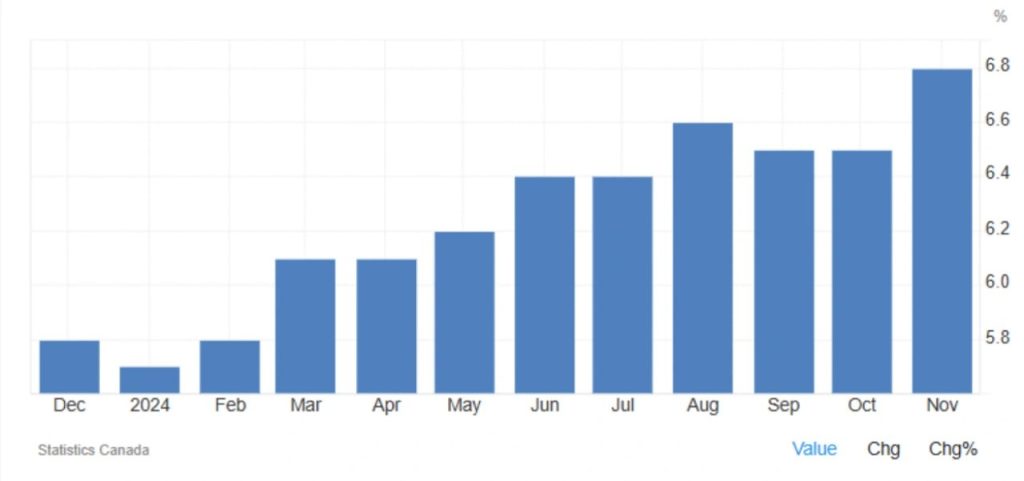
Canada’s Unemployment Rate Climbs to Three-Year High
Canada’s unemployment rate increased to 6.8% in November 2024, up from 6.5% in October and surpassing expectations of 6.6%. This marks the highest level of unemployment since September 2021 and highlights growing concerns about a softening labor market. Policymakers at the Bank of Canada had recently raised alarms about weakening employment conditions, and the latest data appears to confirm these worries. The number of unemployed Canadians rose by a significant 87,300, reaching a total of 1,516,300.

Employment Growth Offers Mixed Signals
Despite the rise in unemployment, total employment in Canada increased by 50,500 to 20,647,400. This growth suggests that while new jobs were created, they were not sufficient to absorb the growing labor force. The increase in the labor force participation rate, which rose by 0.3 percentage points to 65.1%, indicates that more Canadians are entering or returning to the workforce, adding pressure to the labor market. This is the highest participation rate recorded in the past three months.
Unemployment Across Age Groups
The unemployment increase was widespread, affecting all major age groups. Youth unemployment rose significantly, with 41,200 more young Canadians joining the ranks of the unemployed, bringing the total to 444,600. The core working-age population also saw a notable increase in joblessness, rising by 24,200 to 828,100. Meanwhile, the older population experienced an uptick in unemployment as well, with an additional 21,800 individuals out of work, raising the total to 243,500.
Labor Market Outlook
The combination of rising unemployment and an expanding labor force highlights the challenges facing Canada’s labor market. While employment numbers are growing, the pace is insufficient to offset the rising number of job seekers. Policymakers at the Bank of Canada will likely continue to monitor these trends closely as they assess the broader economic outlook. The November data underscores the need for targeted strategies to address the labor market’s structural challenges and support sustainable growth in employment.
Share
Hot topics

Trading with price action
When they start, most traders will believe that they must discover the ideal indicator for success. At otet markets, we see this every day.They test a variety of indicators, including...
Read more




Submit comment
Your email address will not be published. Required fields are marked *